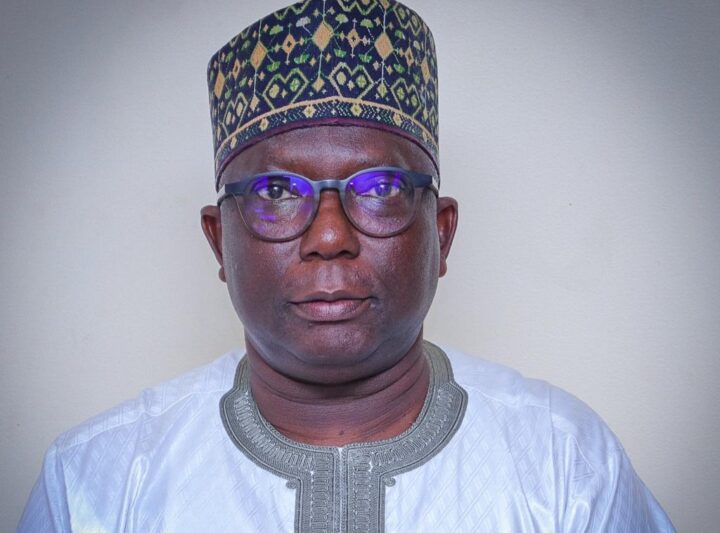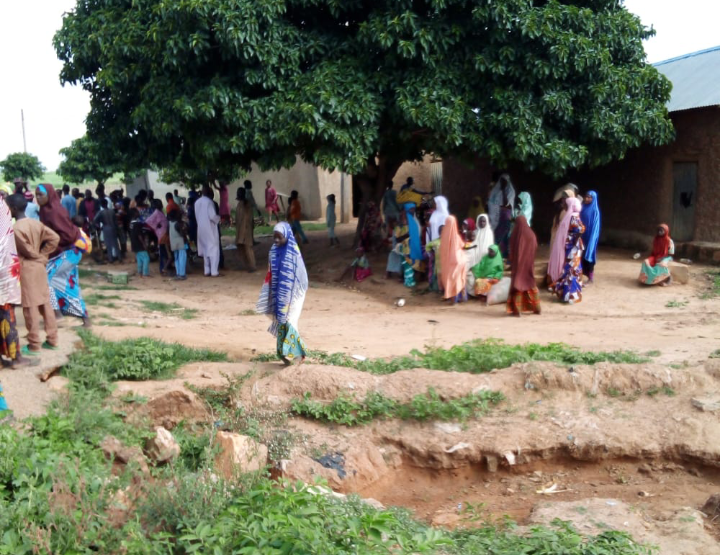On Friday, President Muhammadu Buhari announced the appointment of Salisu Dahiru as the pioneer director-general of the climate change council.
This appointment is coming eight months after the signing of the climate change act which provided for the establishment of the council.
TheCable had reported that six months after the signing of the act, implementation did not commence. This delay led to outcry from stakeholders and a social media campaign to force the federal government to begin implementation.
Announcing the appointment, Saghir Mohammed, press director, ministry of environment, said Dahiru was appointed to drive the implementation of the climate change act and the national climate change action plan, including the development of a carbon market framework and a national adaptation plan.
Advertisement
WHO IS SALISU DAHIRU?
Sixty-year-old Dahiru was born in 1962 in Keffi, Nasarawa state. He began his formal education at the Ahmadu Maikwato Primary School, Keffi, in 1968 and subsequently moved to the Federal Government College, Ilorin, in 1974. He obtained his West African School Certificate in 1979 before proceeding to Ahmadu Bello University, Zaria, where he earned his Bachelor of Science (B.Sc) degree in Botany in 1984.
Dahiru also advanced to obtain a master’s degree in Cytogenetics and Plant Breeding from the University of Jos, in 1993; and in 2019, he bagged a PhD in Environmental Resources Management from the Nasarawa State University, Keffi.
Advertisement
In 1985, he became a lecturer at the Federal Polytechnic, Bauchi.
To further solidify his expertise in the environment and climate change sphere, Dahiru attended various courses on project management, environmental sustainability and governance; World Bank guidelines on public procurement; including Harvard executive course on climate change.
He is a member of various professional bodies, some of which include Nigerian Environmental Society (NES); Forestry Association of Nigeria (FAN) and Nigerian Institute of Management (NIM).
FORMER NATIONAL PROJECT COORDINATOR FOR NEWMAP
Advertisement
Prior to his appointment, Salisu was the national project coordinator for the Nigeria Erosion and Watershed Management Project (NEWMAP) partly financed by the World Bank.
At NEWMAP, he was responsible for overseeing and coordinating the implementation of erosion control projects in the 23 NEWMAP participating states across Nigeria.
The eight-year project initiated in 2012 and aimed at addressing the gully erosion crisis in southern Nigeria and land degradation in northern Nigeria was said to have recorded “much success”.
According to the World Bank, it is one environment project in West Africa that can be used as an example of “a success story.”
Advertisement
Dahiru also served as the national project coordinator for Agro-Climatic Resilience in Semi-Arid Landscape (ACReSAL).
Dahiru was once Nigeria’s lead negotiator for the Agriculture, Forest and Other Land Use (AFOLU) sector under the United Nations Framework Convention on Climate Change (UNFCCC).
Advertisement
In 1992, he worked as the principal forestry officer and later as chief forestry officer responsible for forest resources management and administration, and the coordination of Nigeria’s Accelerated Industrial Crops Production Programme.
In 1998, he was promoted to the position of assistant director, parks and recreation, where he was responsible for the development and management of the Abuja parks.
Advertisement
He joined the federal ministry of environment as an assistant director forestry, in 2006, where he served as the desk officer for the Convention on Biological Diversity (CBD).
In 2010, he was appointed the national coordinator, Reducing Emission for Deforestation and Forest Degradation (REDD+), where he worked as the team lead for mainstreaming of REDD+ into the country’s national development agenda.
Advertisement
In 2013, while still coordinating the REDD+ programme, he was promoted to the director of forestry and head, federal department of forestry.
‘FORESTS CAN HELP IN TACKLING CLIMATE CHANGE’
Dahiru who has been in the forestry sector long enough understands its use as a nature-based solution for climate change. He believes forests are a great resource and can help tackle the negative impacts of climate change.
In an interview with Center for International Forestry Research (CIFOR), Dahiru said the root cause of climate change can be traced to deforestation.
“The problems in climate change can be traced largely to deforestation and conversely the solutions also lie in forest conservation and increasing forest cover,” he said.
“The role that the forest will play now and in the future is primary and is very critical if we want to have any meaningful progress on the climate change discussions.”
He added that the level of deforestation and dependence of rural people on forest resources exerts pressure on Nigerian forests which lose about 350,000 to 400,000 hectares of forest annually.
“To reverse this trend we have to do twice of that in terms of our recovery through multi-sector and multi-level approaches,” he added.
WHAT IS EXPECTED OF HIM ON THE JOB?
The climate change act clearly states that the director-general doubles as the secretary of the council and is confined to a term of four years unless reappointed.
Buhari, Vice-President Yemi Osinbajo and ministers of environment, power, finance and others constitute the council. However, the director-general is to see to the day to day administration of the council. This means that he is saddled with the responsibility of ensuring that the objectives of the council as outlined in the act are achieved.
The act also states that the DG will formulate an action plan every five-year cycle and a detailed report on the state of the nation with regards to climate change.
He is also expected to, within three months after the end of every financial year, publish publicly and submit to the national assembly, an evaluation report on performance of climate change duties by private and public entities.
Add a comment






